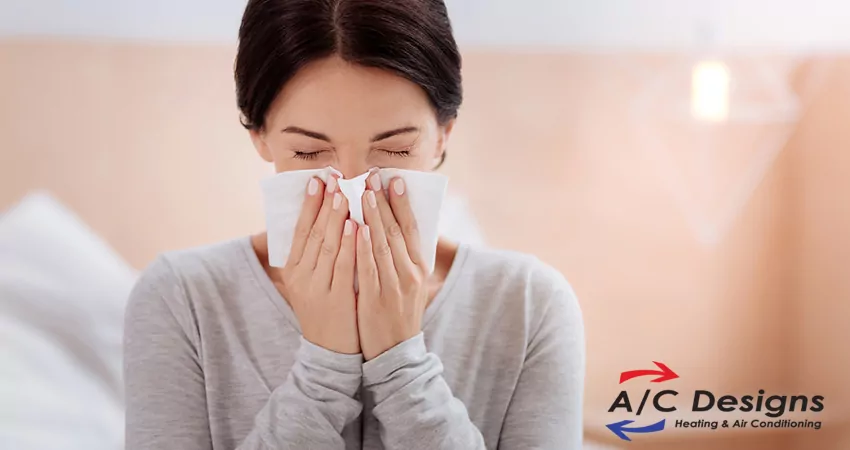Poor air quality can contribute to significant health issues inside your own home. According to the Environmental Protection Agency (EPA), there’s scientific evidence that the air inside homes can be more polluted than that outside. In fact, the concentration of some pollutants could be as much as five times greater inside a home than those that are found outdoors.
The side effects of breathing in particles containing these pollutants can be immediate or build up over time. They can range from dizziness, irritation of the nose, throat and/or eyes, fatigue, headaches and more. Those with compromised immune systems and chronic diseases, such as asthma, as well as the very young and the very old, could be at an increased risk.
Common Causes of Poor Indoor Air Quality
Although there are many causes of poor indoor air quality, there are several that are most often found inside homes. Viruses, pollen, fungi, dust, and others are often microscopic in nature so their particles can’t be seen. These – and other pollutants – can enter your home every time you open the door or window. They can also make their way inside through unseen cracks, chimneys, and your HVAC system ductwork.
1. Dirty or Wrongly-Sized Filters: Air filters are designed to trap microscopic particles, protecting your AC system components and eliminating particles in the air. If your filters are dirty or are not the correct size for your HVAC system, though, the result can be that your indoor air quality and system efficiency both worsen.
2. Too Much – or Too Little – Humidity: If there is too much humidity inside your home, pollutants and bacteria have the ideal environment to flourish. When the humidity is elevated in your home, it can also prompt certain household materials to release contaminants into the air. Some homeowners might be surprised to learn that low humidity can lead to these issues as well. With low humidity levels, body moisture evaporates so quickly that you feel chilled even at higher thermostat settings. Your home suffers, too. Low humidity can cause havoc with woodwork and furniture. You’ll notice shrinkage, hardwood floor separation, and warping, your piano will go out of tune, wallpaper peels at the edges, drawers loosen, and molding gaps start to appear.
3. Poor Ventilation: Today’s homes — especially those that are new — are designed to be airtight for improved energy efficiency. However, this can lead to the entrapment of pollutants because not enough fresh air is able to enter the home. Unless your AC system is also equipped with a dehumidifier, poor ventilation can also result in increased humidity levels.
A/C Designs understands the importance of protecting your indoor air quality. Our professional team is experienced in the proper maintenance of HVAC systems throughout the Jacksonville, Florida area. We work closely with our customers to find the right system, as well as its related components like air filters, to reduce the level of pollution inside the home. Contact us today to schedule an appointment

